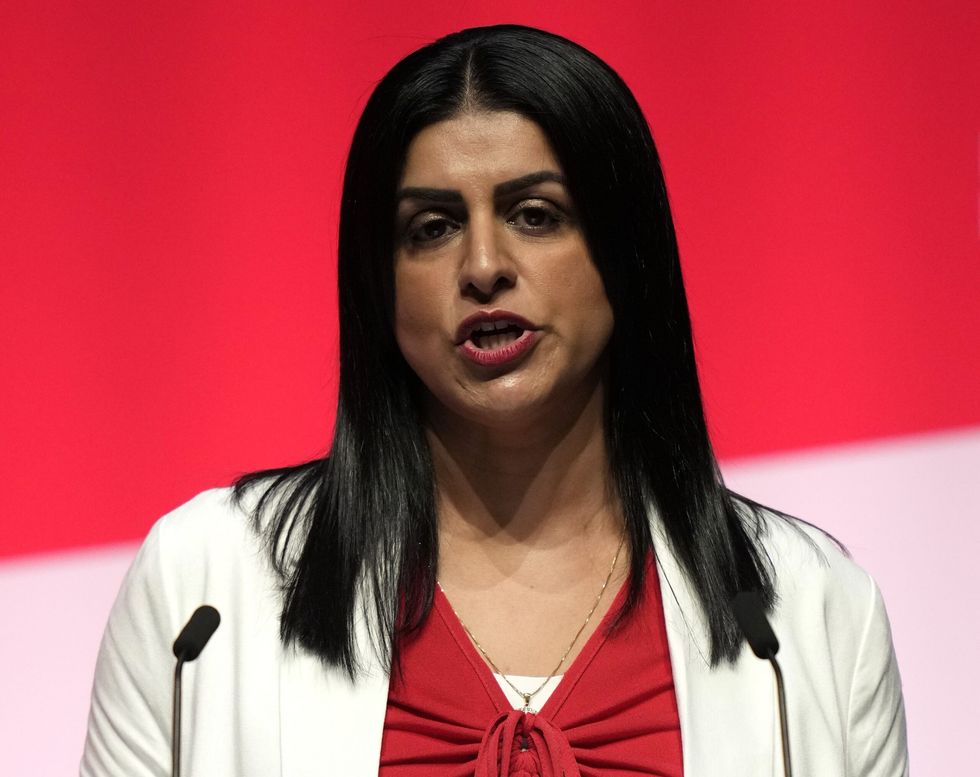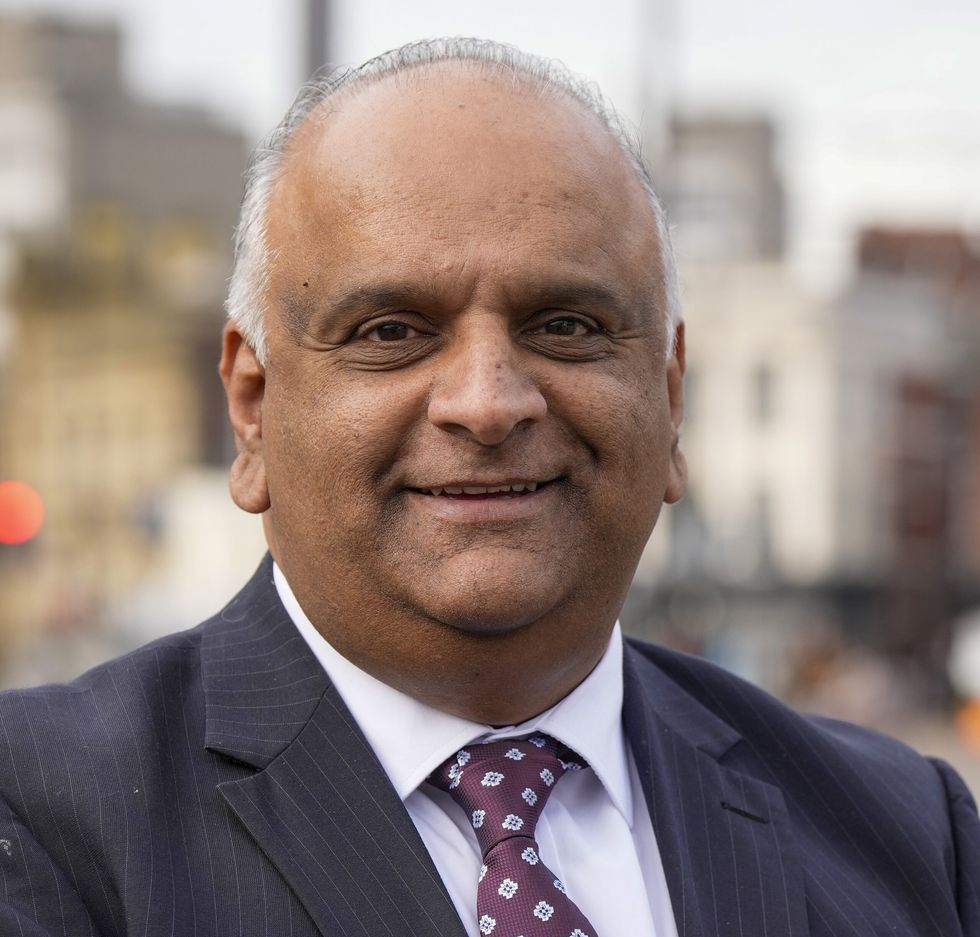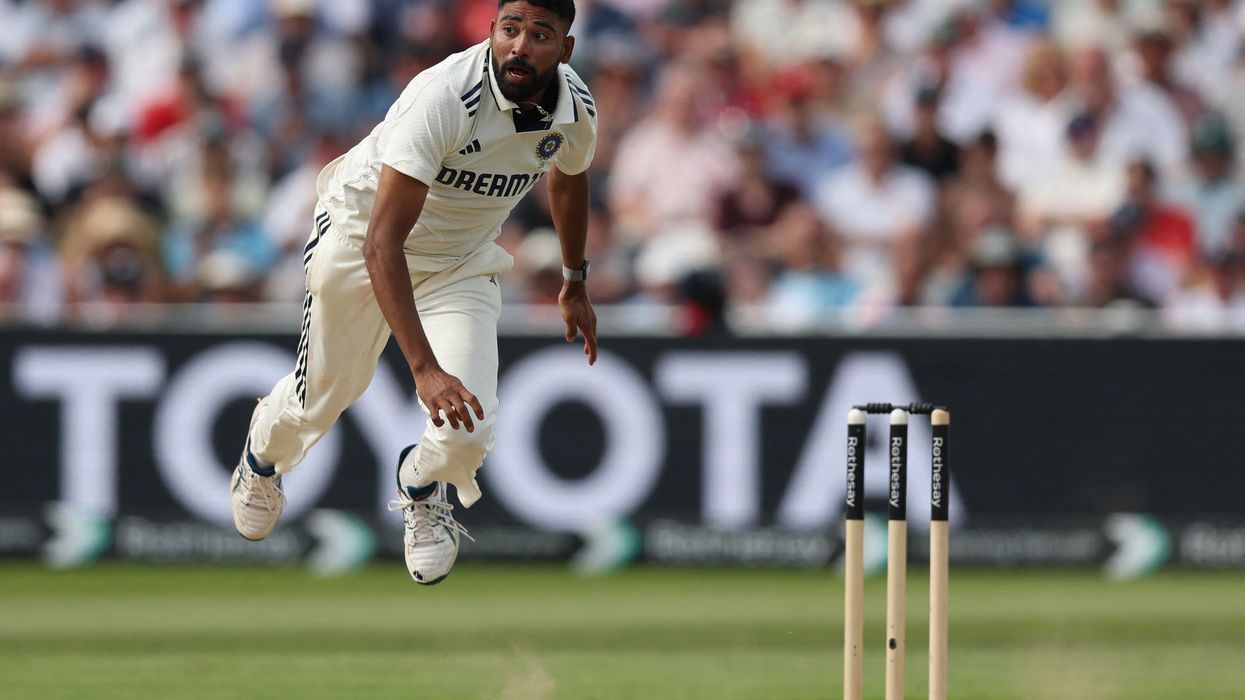LABOUR is “haemorrhaging” the Muslim vote, which will have a negative impact when Britain holds the general election, expected later this year, party MPs have told Eastern Eye.
Late on Monday (12), Labour withdrew its support and suspended for its candidate for Rochdale, Azhar Ali, following criticism of remarks he made about Israel.
Ali will still appear on the ballot as the party's candidate and should he win, he will be an independent MP.
It is a major blow for Labour as Rochdale was considered to be a safe seat.
A survey last week among Muslim voters showed that only 43 per cent of those who voted for Labour in the 2019 general election declared they will vote for the party again.
Labour leader Sir Keir Starmer’s handling of the ongoing Israel-Gaza war was cited as a key reason in leaving Muslim voters feeling “disillusioned”.
“They've haemorrhaged the Muslim vote and they've not done anything to try and go back and amend the damage they've done,” one Labour MP told Eastern Eye.
“The moral high ground right now on Gaza, belongs to the Tories (foreign secretary David Cameron earlier this month called for a ceasefire in the region and later said the UK is considering a push to recognise a Palestinian state),” the Labour MP added.
“We've been outflanked by the Tories time and time again. Muslim voters feel like they no longer have a political home, that’s how disillusioned they feel.
“The narrative in the community now is, ‘we'd rather not have a political home, than be taken for granted by the Labour party’.”

Trust issues
Last Friday (9) the shadow justice secretary, Shabana Mahmood MP, said there had been “a loss of trust” from British Muslims in the party over Israel-Gaza issue and urged Labour to “rebuild” relations with Muslim voters.
Data from a research company, Survation, and the Labour Muslim Network (LMN) found that 86 per cent of British Muslims voted Labour in the 2019 general election.
Asked how they would vote now, only 43 per cent said they will definitely vote Labour again, while 23 per cent were undecided.
“I believe Labour is going to lose a lot of Muslim voters. The party have previously taken Muslim voters for granted,” a Labour parliamentarian told Eastern Eye.
“There was an assumption that Muslims just voted Labour.
“That was a comfortable assumption because that's how it appeared in lots of Muslim communities.
“However, a series of decisions have been made that have affected how the Muslim community feel about Labour.
“They feel an incongruency with their values and some of what the Labour Party appears to have supported and stood for.”

“Complete disaster”
A Westminster insider described the situation as a “complete disaster”.
“It's actually worse than it was during Iraq.
“In the middle of the Iraq crisis, there was a by-election, which Labour lost really, really badly.
“The key day, of course is February 29, when we find out the by-election result for Rochdale.”
On Monday, Sir Keir called for a “sustainable ceasefire” in relation to the Israel-Gaza conflict, saying it would be “catastrophic” if Israel attacked Rafah where 1.4 million displaced Palestinians are based.
However, his initial stance on the war in October, when he refused to call for a ceasefire and suggested Israel had the "right" to cut off water and energy to Gaza, led to the resignations by a number of frontbench Labour MPs and councillors.
“If you look at some of the things that have happened, that have been particularly unfortunate, such as (Starmer’s) comments on LBC about Israel having the rights to cut off water and electricity to Gaza and then no clarification issued for nine days,” the Labour parliamentarian said.
“Even then, it was a bit of gaslighting, really, as to the fact that's not quite what he meant to say.
“But, really and truly, the Muslim community and the wider community have been let down.”

“Disingenuous” Starmer
The parliamentarian also revealed there have been briefings within Labour that have insinuated this is a Muslim against Jews issue.
“It’s been suggested that Muslims cared about Gaza was because they were anti-Semitic - that assumption is really dangerous,” said the parliamentarian.
“There were some briefings where they said the Muslim voters are really unhappy with us (Labour) because of our tough stance on anti-Semitism, which is horrendous to say, because that basically says Muslims hate Jews.
“When in fact, the whole premise of being a Muslim is the fact that you care about human rights, regardless of who's affected.”
The Labour MP said Sir Keir’s change of stance on Gaza was “disingenuous” and a ploy to garner the Muslim vote.
“If you look at the scripted comments that came out from Starmer on Twitter (now X), a couple of hours later David Lammy spouts exactly the same lines. It's condescending.
“People aren’t stupid, it’s just not Muslim voters, any voter.
“If you look at the two tweets that were sent out (calling for a ceasefire), it was appalling - it was like they're controlling the narrative.
“There's no politics in it anymore, it's just a narrative to get into power.
“Muslims know Labour isn't ahead because it's brilliant, Labour is ahead because the Tories are so crap.
“Starmer is as toxic on the doorsteps as Jeremy Corbyn was pre-2019.”
Independent challenges
The Westminster insider revealed that Muslim communities were coming together to put up independent candidates in the upcoming general election and described the situation as “catastrophic” for Labour.
“There was a meeting in different mosques in the country on Sunday (11).
“The one in Harrow said independent candidates were going to be put up in 30 constituencies,” said the Westminster insider.
“There is no way Muslims are going to go out and vote positively for Labour.
“The two ways Labour are hurt is if they stay at home, and secondly, and more significantly, while they won’t vote Tory, they will vote positively for an independent candidate.”
No recovery
A new website, themuslimvote.co.uk, was recently launched and asked Muslim voters to back a number of locally approved candidates.
It said it was “focused on seats where the Muslim vote can influence the outcome” and will not back anyone “who voted against or abstained on the ceasefire vote”.
Among its backers are NGOs, community groups and Muslim-run businesses.

One Labour MP described as “astonishing” the level of funding donated towards independent candidates to run against Labour.
Tasnime Akunjee, the lawyer who represents Londoner Shamima Begum who was stripped of her UK citizenship after she joined Daesh (Islamic State group), has announced he will stand as an independent candidate in the Bethnal Green and Bow seat in east London.
Shadow business minister Rushanara Ali MP represents the seat in the Commons.
Pro-Palestinian activist Leanne Mohamad has been installed to stand against shadow health secretary Wes Streeting in Ilford North, with a major fundraising campaign already underway to back her.
“They say there are 30 constituencies, but actually I think it's more than 30, because 30 is where there is a substantial vote - meaning over 15,000.
“There are other seats where there are 3,000 to 5,000 votes, such as Gerrard's Cross (south Buckinghamshire)… you wouldn't think it, but there are lots of Muslims living there and other places, like the outer suburbs of London such as Essex are the same,” said the Westminster insider.
“There's no way the Labour Party can recover from this.”
A Labour spokesperson told Eastern Eye, “The Labour party is committed to a strong relationship with the Muslim community.
“We have been clear that we need to see a sustainable ceasefire and that aid getting into Gaza must be ramped up.
“Labour is committed to tackling Islamophobia and will continue to robustly stand up for the rights of Muslims in our party and wider society.”
Academic: Discontent with party more likely to be felt in by-election
MARIA SOBOLEWSKA, a professor of political science at the University of Manchester, told Eastern Eye Muslim voters’ discontent with the Labour Party would more likely be felt in by-elections rather than the general election, writes Sarwar Alam.
She said although the Israel-Gaza situation was important to Muslim voters, during a general election, it will be other issues closer to home that will take priority when voters decide who to cast their ballots for.
“Muslim voters are the same as any other voters. Foreign policy for them and the issue of Palestine and Gaza are just one of the issues they care about – but not all of them will put that as number one.
“You still see a lot of voters caring more about the NHS, the economy, the cost of living crisis - all of those things would still trump the considerations of the situation in Gaza,” said Sobolewska.
“By-elections are not run on ‘let’s change the government issues’, so we see what is called expressive voting, where people vote more on their principles and more as a protest vote, expressing frustration with both sides.
“The by-election is just the one seat. This is a very good time to send the message to both parties, declaring ‘you have to change your stance and we're not happy’.
“For Muslim voters, it can be a message to Labour saying, ‘we feel like you've abandoned us’.
“However, when it comes to the general election, people are much more likely to vote in a strategic manner and what's best for the country, overall. And Muslim voters, like any other voters, they live in the same country and I think they are fed up with this government more than what’s happening abroad.”

Sobolewska cast doubt on the overall impact of the Muslim vote on the next general election. Muslims tend to live in Labour safe seats, and there aren't many that would change hands just on the back of the Muslim vote, she said.
Research from the think-tank British Future found that while Labour risks losing “significant numbers of Muslim voters”, it was unlikely to lose “even a handful of seats” as a result at the upcoming election.
Its findings showed the general election challenge for independent candidates is that almost no Westminster constituencies could be won with an appeal to a single minority group.
“Muslim voters might say, ‘we are leaving the Labour Party because of Keir Starmer’s stance on Gaza’, but they have nowhere to go, because it was pretty much the stance of all the parties,” said Sobolewska.
“I suspect that even though British Muslims, maybe in greater numbers, will say ‘Labour is not my party, I don't feel they represent me’, when push comes to shove at the general election, their choice comes to letting in the Conservative government or voting Labour, they’ll hold their noses and vote Labour.”

















